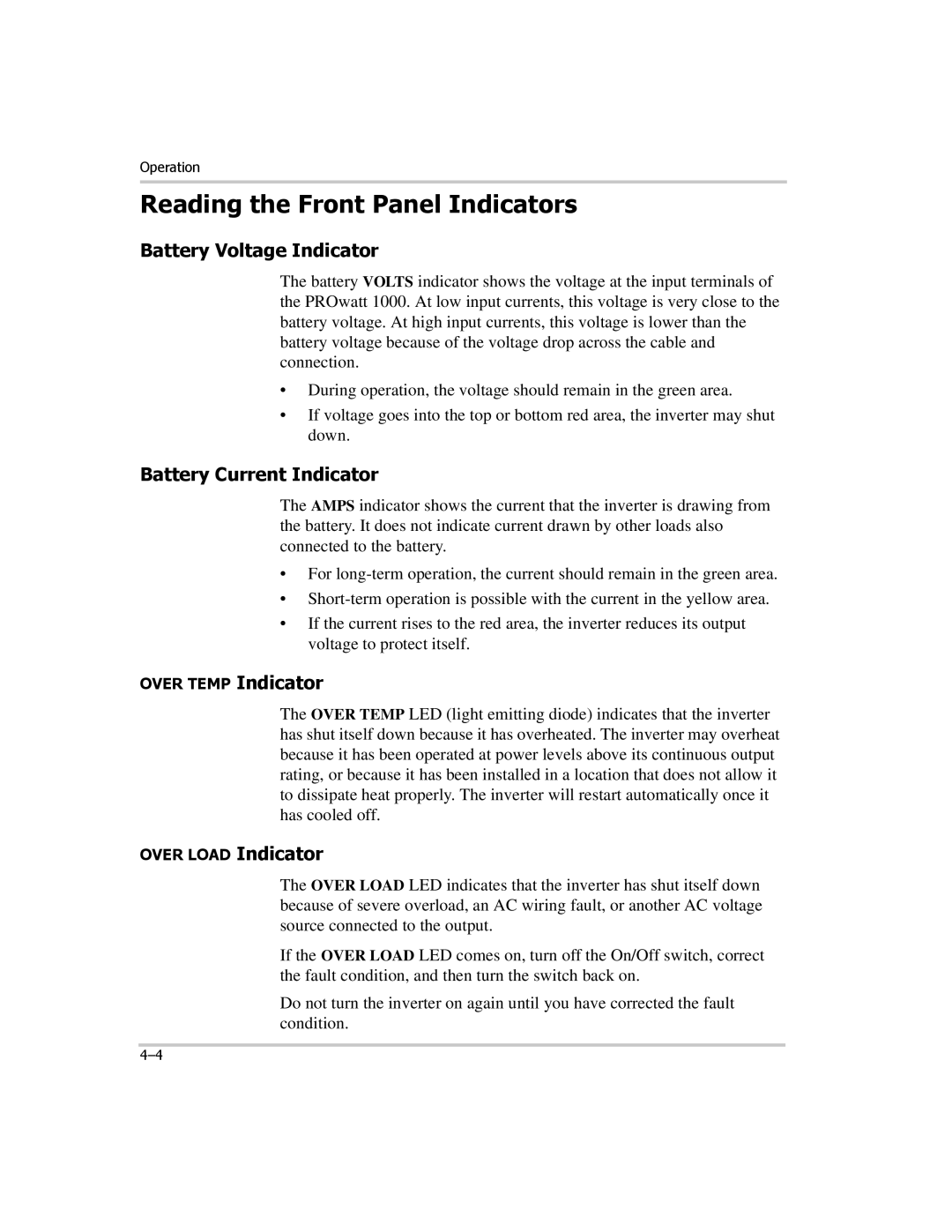
Operation
Reading the Front Panel Indicators
Battery Voltage Indicator
The battery VOLTS indicator shows the voltage at the input terminals of the PROwatt 1000. At low input currents, this voltage is very close to the battery voltage. At high input currents, this voltage is lower than the battery voltage because of the voltage drop across the cable and connection.
•During operation, the voltage should remain in the green area.
•If voltage goes into the top or bottom red area, the inverter may shut down.
Battery Current Indicator
The AMPS indicator shows the current that the inverter is drawing from the battery. It does not indicate current drawn by other loads also connected to the battery.
•For
•
•If the current rises to the red area, the inverter reduces its output voltage to protect itself.
OVER TEMP Indicator
The OVER TEMP LED (light emitting diode) indicates that the inverter has shut itself down because it has overheated. The inverter may overheat because it has been operated at power levels above its continuous output rating, or because it has been installed in a location that does not allow it to dissipate heat properly. The inverter will restart automatically once it has cooled off.
OVER LOAD Indicator
The OVER LOAD LED indicates that the inverter has shut itself down because of severe overload, an AC wiring fault, or another AC voltage source connected to the output.
If the OVER LOAD LED comes on, turn off the On/Off switch, correct the fault condition, and then turn the switch back on.
Do not turn the inverter on again until you have corrected the fault condition.
